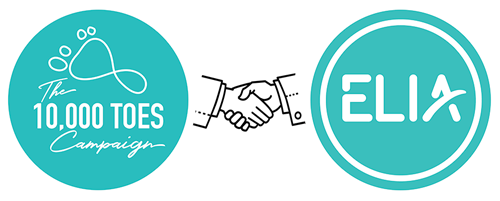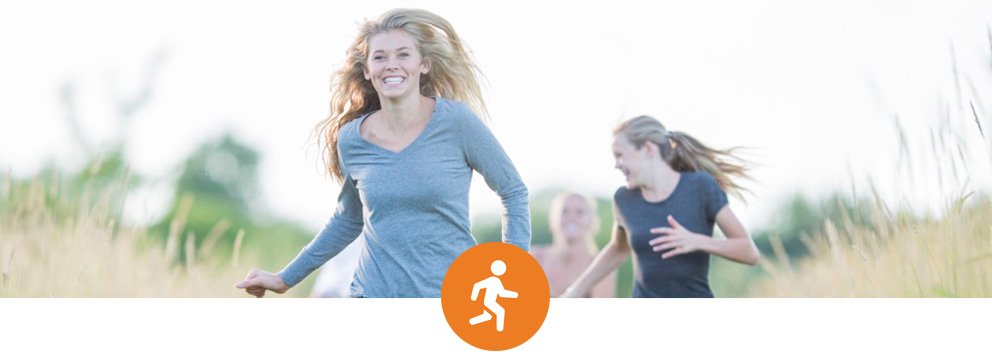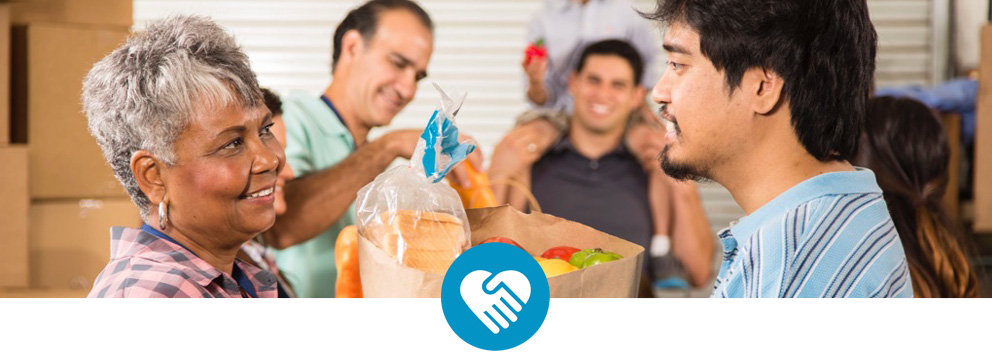The 7 Dimensions of Wellness is a health framework for whole-person health.
Learn more about each dimension

Learn more about each dimension
Emotional
When you are thriving emotionally you feel content and your outlook is positive. You are able to work through stressful situations and emotionally challenging events.
DID YOU KNOW?
The use of antidepressants has doubled in The Organisation for Economic Co-operation and Development countries between 2000 and 2015. Australia has the second-highest level of consumption in the world. Depression is the leading cause of disability worldwide and is a major contributor to the overall global burden of disease.
The World Happiness Report looks at changes in happiness. The main areas that were found to influence wellbeing included income, healthy life expectancy, social support, freedom, trust, and generosity.
WHAT CAN WE DO TO STAY HEALTHY?
- Food affects your mood – Eat healthier to be and feel better.
- Move more to boost your mood and reduce your odds of depression by 45%.
- Get regular sunlight to stop the blues.
- Get adequate rest.
- Control and avoid stress.
- Rhythmic deep breathing; mindfulness; prayer/meditation; a weekly sabbath rest.
- Think and Speak positively.
- Socialise.
Don’t let stress and depression rob you of your peace or happiness. Start and end your day with gratitude.
READ THE FULL ARTICLE (References included)
![]()
Physical
Consuming the optimal diet, being physically active, getting rejuvenating rest, being well hydrated, not smoking, and avoiding toxic substances will help you live the best life, full of vigour and vitality.
DID YOU KNOW?
50% of Australians have at least one chronic condition, nearly 25% have two or more. Cancer, coronary heart disease, and mental illness contribute the most to the disease burden. A staggering 80% of our risk of developing a chronic disease is related to our diet, movement, weight, and smoking.
Diets high in whole-plant foods can improve your physical and mental wellbeing. Exercise can improve your life, from helping you to control your weight to boosting your mood. Insufficient sleep affects productivity, mood, mental health, energy levels, problems with memory, obesity, and other physical health problems.
Over 200 health conditions are linked to harmful alcohol use. Ranging from liver diseases, road injuries, and violence, to cancers, cardiovascular diseases, suicides, tuberculosis, and HIV/AIDS. Tobacco use is responsible for the deaths of about six million people globally each year. This includes 600,000 from secondhand smoke.
WHAT CAN WE DO TO STAY HEALTHY?
- Increase physical activity.
- Increase consumption of whole plant foods.
- Get adequate sleep.
- Hydrate well.
- Minimise or avoid toxins.
- Eat, drink, move, rest to live your best.
Eat, drink, move, rest to live your best.
READ THE FULL ARTICLE (References included)
![]()
Social
Two is better than one. Being socially connected makes a big difference to your health and it is the quality of those connections that make a difference. We are created to be social beings and live in a community!
DID YOU KNOW?
Both social isolation and loneliness increase mortality, regardless of whether the person has any health problems or doesn’t feel lonely. Developed and wealthier nations like the US, Germany, the United Kingdom, and Australia are NOT featured in the top 10 happiest countries. Having a social community around you helps decrease the negative side effects of worry, sadness, and anger.
Loneliness is a growing issue that is continually increasing across the globe. Loneliness is significantly greater in societies and age groups where social media usage is the highest. Since 2009, adolescents’ communication via social media has increased, while face-to-face interaction has decreased. The more time they spent on social media, the more likely they are to be unhappy or depressed.
WHAT CAN WE DO TO STAY HEALTHY?
- Build community with people that are positive and uplifting.
- You can also strengthen your existing relationships by loving and if need be, forgiving those nearest to you. Or find new friends who are positively oriented with a like-minded community such as a sporting club or church group.
- Volunteer to create more opportunities to be social.
- Perform 5 acts of kindness to others per week.
- Smile and talk positively – these are infectious and draw others to you.
- Be exposed to nature – it may boost kindness to others.
- Learn to communicate effectively by being an active listener. Express your thoughts, feelings, and wants, using non-confrontational body language.
- Learn skills to manage situations where conflict arises when your interests, needs, goals, or values interfere with those of someone else.
- Appreciate your own culture as well as other cultures.
Make spending time with family or friends a priority.
READ THE FULL ARTICLE (References included)
![]()
Vocational
Being vocationally enriched throughout your life, even in retirement can add that extra spark to your day and improve your wellness!
DID YOU KNOW?
Globally, about 970 million people volunteer their time and skills. This is equivalent to over 125 million full-time workers at a value of US$1.348 trillion (AU$1.888 trillion) or 2.4 percent of the entire global economy.
Your job, leisure, and service-related activities should engage and enrich you. Finding activities that you love and find mentally stimulating, uses your skills, and gives you purpose, meaning, and a sense of achievement. Your work should energize you and motivate you to turn up every day.
WHAT CAN WE DO TO STAY HEALTHY?
- Your work should be your calling and be enjoyable most of the time.
- If not, explore various career options until you find where you fit with your particular skills and interests.
- Talk to your manager if your workload is not manageable.
- Achieve a balance between your roles, responsibilities, and leisure time.
- Identify and reduce stress in your vocational activity by learning project/time management, presenting, writing, communication, and study skills.
- Consider volunteering your time and skills to a worthy cause – without this detracting from your family and work commitments.
Have a heart for service and focus on activities that stimulate you and add meaning to your life!
READ THE FULL ARTICLE (References included)
![]()
Intellectual
Intellectual engagement is keeping your brain sharp by learning throughout your life. Sharing what you have learned will not only consolidate this in your own mind but help others to grow and reach their potential. Spending time in self-reflection and critical thinking also sharpens the brain.
DID YOU KNOW?
Older adults who intentionally engage in aerobic exercise, have a healthy diet and practice caloric restriction/intermittent fasting may prevent cognitive decline, by stimulating new neurons and reducing inflammation, oxidative damage, and amyloid build-up.
Engaging in stimulating intellectual activities strengthens the neural networks within the brain. Brains exhibiting loss of neurons are more likely to progress to Alzheimer’s disease from mild cognitive impairment
WHAT CAN WE DO TO STAY HEALTHY?
- Engage in complex brain activities to improve your intellectual wellness.
- Reading for fun can stretch your mind in directions other than reading for work.
- Debating an issue with a friend, and choosing the viewpoint opposite the one you hold will expand your reasoning and critical thinking.
- Explore things you have never done before.
- Be creative.
- Learn a foreign language.
- Playing a game of any kind and/or musical instrument extends your brain’s processing ability.
- Write down your thoughts or journal frequently to express and consolidate your feelings.
- Do crossword or other puzzles to keep your brain stimulated.
- Attend conferences, talks, and programs to expand your knowledge.
- Learn practical skills that you or a friend may need.
- Be physically active and eat a whole food plant-based diet.
- Practice a form of intermittent fasting that suits you. Eg. 12-16 hour overnight fast every day or a 5-2 day fast, every week for enhanced brain function and longevity.
Seek opportunities to learn something new today and then share what you have learned.
READ THE FULL ARTICLE (References included)
![]()
Environmental
Being environmentally attuned is a two-way street. Enjoying nature and living in a clean environment with adequate sunlight, clean air, having low levels of noise pollution and toxic substances benefits our health. But it is also important to give back to the environment by minimising our impact on it.
DID YOU KNOW?
The world’s top five meat and dairy corporations may now be responsible for more annual greenhouse gas emissions than Exxon, Shell, or BP. The latest figures show that humanity’s footprint was the equivalent of 1.69 earths in 2014, with Australia using the resources of 4.09 planets, the United Kingdom 2.85, and the US 4.97 planets.
Our disregard for our environment is changing our climate and is expected to have devastating effects on allergies, mosquito and tick-borne disease, chronic diseases like diabetes, premature deaths, and suicide rates.
WHAT CAN WE DO TO STAY HEALTHY?
- Eat more whole plant foods and replace animal protein with plant protein.
- Determine your ecological footprint at https://www.footprintnetwork.org/ then practice environmentally conscious behaviors.
- Recycle and conserve energy.
- Immerse yourself in nature.
- Natural sunlight, nature’s fresh air, walk barefoot on green grass or beach.
- Encourage your local ecosystem to thrive by growing your own fresh produce and build a community garden.
Join the movement and be environmentally attuned.
READ THE FULL ARTICLE (References included)
![]()
Spiritual
Being spiritually empowered is the cherry on the cake for living your best and abundantly full life. Your connection to God will give your life purpose, meaning, and hope.
DID YOU KNOW?
Spirituality and trust in Divine power are linked to physical and mental health and longevity.
Spirituality encompasses the way one views their purpose and meaning in life. As well as their deepest beliefs and morals, life decisions, character, perspective on spiritual beliefs, and a higher being.
Beliefs about where we came from, why we are here, where we are going, give meaning to life and remove anxiety about the future. They can provide meaning and hope during disappointment and difficult times.
WHAT CAN WE DO ABOUT IT?
- Take time to define your values and beliefs – they will guide your decisions and actions.
- Take time for personal reflection and time to pray.
- Practice gratitude every day.
- Practice being in the moment, rather than being stuck in the past or worrying about the future.
- Take time to engage with and care for others.
- If you are religious, find a faith community or activity you are comfortable with and participate on a regular basis.
Experience the benefits of spirituality by being connected to the Divine power.
READ THE FULL ARTICLE (References included)
![]()









